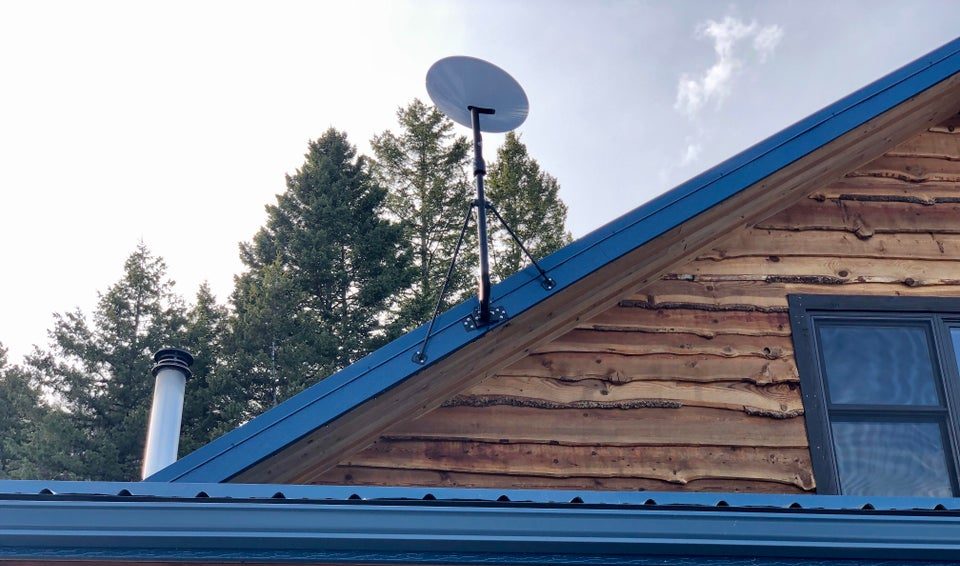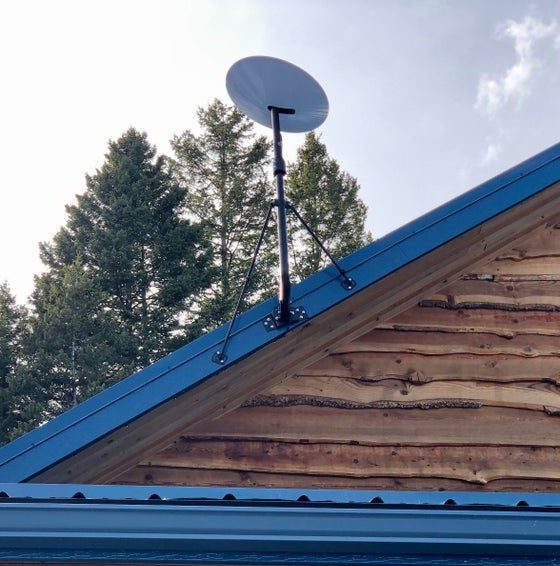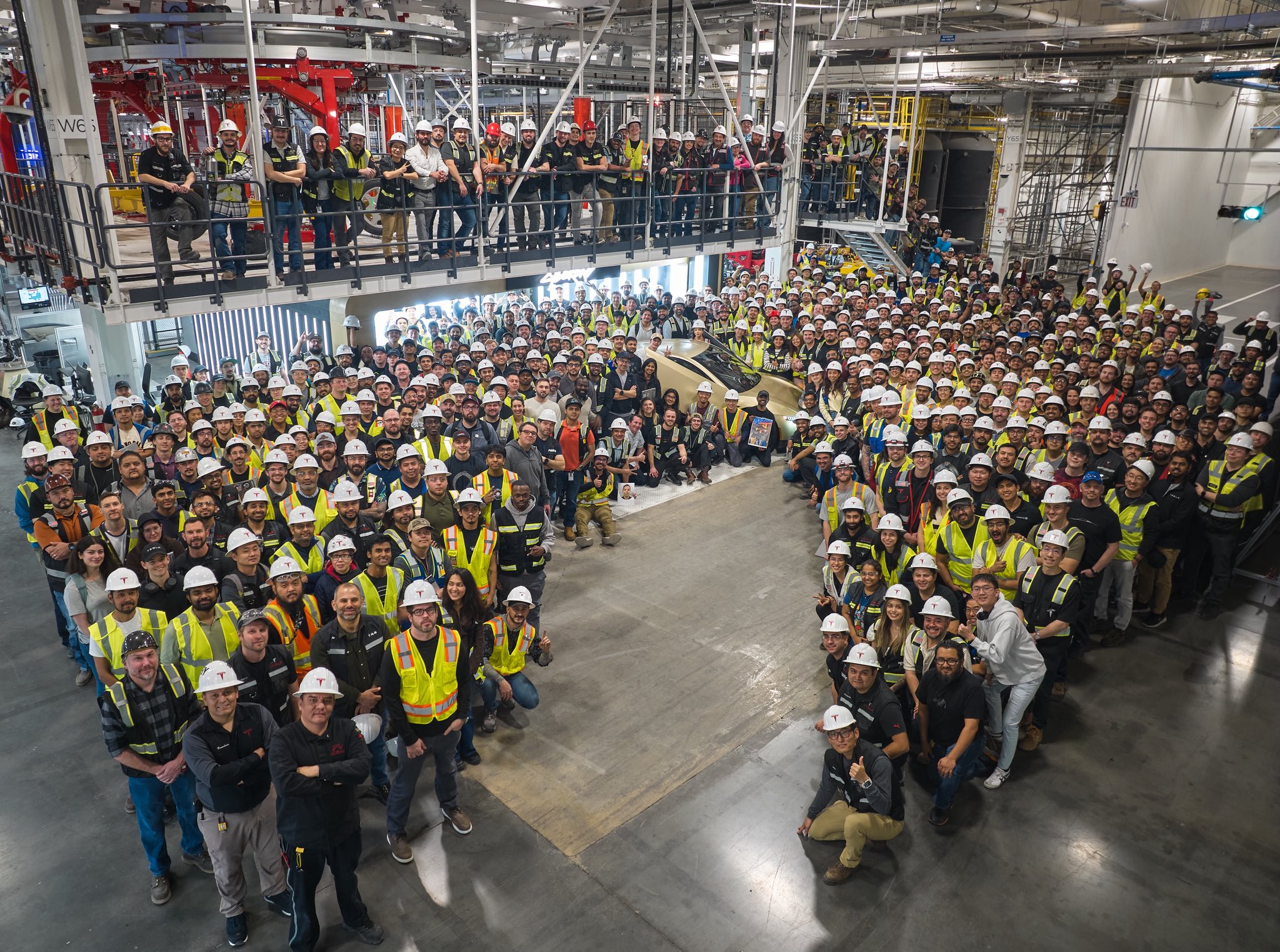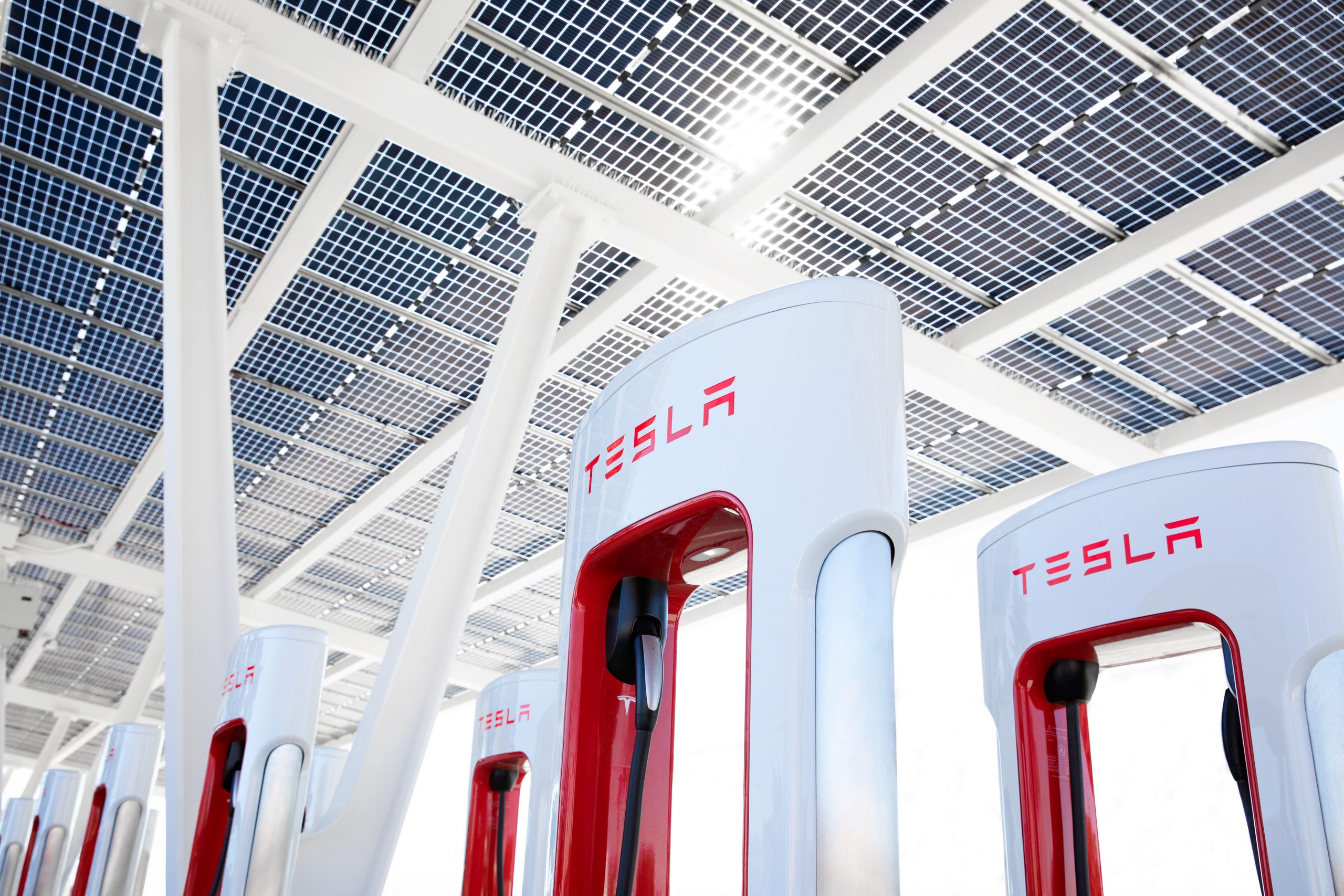

News
Starlink in talks with UK to become part of $6.9B “Project Gigabit” program
Elon Musk’s Starlink seems poised to receive some extra funding as part of “Project Gigabit,” the United Kingdom’s new $6.9 billion internet infrastructure program.
In a statement to CNBC, a person reportedly familiar with the matter noted that UK Minister for Digital Infrastructure Matt Warman has met with Starlink leadership as part of ongoing discussions about Project Gigabit. Starlink’s potential participation in the internet infrastructure program has received some support, with UK Culture Secretary Oliver Dowden stating that he believes the satellite-based system is one of the best options available today that could provide high-speed internet access to remote areas.
The first phase of Project Gigabit was launched by the UK on Friday. The program, which is expected to cost $6.9 billion (£5 billion), aims to improve the internet access of over one million homes and businesses across the country. For its first phase, the program would gather proposed solutions from companies that provide internet service using a variety of means, such as satellites and other “high-altitude platforms.” One of these companies seems to be SpaceX.
In a way, Project Gigabit’s priorities run parallel with that of Starlink. In the program’s official webpage, the UK government noted that Project Gigabit would be rolled out rapidly, and it would prioritize areas that are suffering from slow internet connections today.
“The government-funded projects will prioritize areas that currently have slow connections and which would otherwise have been left behind in broadband companies’ rollout plans,” the program’s official webpage noted.
These are things that Starlink is designed for, as the system is intended for quick and easy installations anywhere in the globe. Starlink is also just in its early stages, with over 1,200 satellites now in orbit. SpaceX is aggressively ramping the system’s size, however, with Elon Musk estimating that Starlink should be capable of providing global internet access by next year.
Project Gigabit has the potential to provide SpaceX with even more government subsidies. Starlink, after all, was awarded almost $900 million in federal subsidies in the United States late last year under the FCC’s broadband auction. SpaceX received a notable portion of the $9.2 billion auction, which incited in some sharp words and opposition from entities such as DISH Network, other traditional internet providers, and the National Rural Electric Cooperative Association (NRECA). In a statement, NRECA CEO Jim Matheson dismissed the satellite internet system as a “science experiment” with “completely unproven technology.”
Don’t hesitate to contact us for news tips. Just send a message to tips@teslarati.com to give us a heads up.

Elon Musk
Elon Musk confirms Tesla Cybercab pricing and consumer release date
Elon Musk has confirmed that Tesla does intend to sell a version of the Cybercab for less than $30,000 by 2027.

Elon Musk has confirmed that Tesla does intend to sell a version of the Cybercab for less than $30,000 by 2027. He shared the update in a post on social media platform X.
Amidst Tesla’s announcement that the first Cybercab has been produced at Giga Texas’ production line, some members of the Tesla community immediately started joking about how the milestone will affect a wager shared by popular YouTube tech reviewer Marques Brownlee (MKBHD.)
Following Tesla’s We, Robot event in October 2024, MKBHD noted that while the Cybercab was impressive in a lot of ways, he is very skeptical about Elon Musk’s estimate that the autonomous two-seater could be sold to consumers for below $30,000 around 2027.
“I think the obvious red flag, the biggest red flag to me is the timeline stuff. This is notorious Elon stuff. He gets on stage, he says we’re going to have this vehicle out for $30,000 before 2027,” he said, adding “No, they’re not. There’s just no way that they’re actually going to be able to do that. I mean, if they do, let’s say they do, I will shave my head on camera because I’m that confident.”
It was then no surprise that meme images of MKBHD with his head shaved immediately spread on X following Tesla’s announcement that the first Cybercab has been built at Giga Texas. One of these, which was posted by longtime FSD tester Whole Mars Catalog, received a response from Elon Musk. The CEO responded with the words “Gonna happen,” together with a laughing emoji.
Apart from riding jokes about MKBHD’s wager, Musk also confirmed that Tesla will be selling a Cybercab to regular consumers before 2027, and the vehicle will be priced for $30,000 or less. In response to an X user who asked if the exact scenario will be happening, Musk responded with a simple “Yes.”
While the first Cybercab has been produced at Giga Texas, it would not be surprising if the following months will only see low volumes of the autonomous two seater being produced. As per Elon Musk in previous comments, the Cybercab’s early production will likely be slow, but it will eventually be extremely fast. “For Cybercab and Optimus, almost everything is new, so the early production rate will be agonizingly slow, but eventually end up being insanely fast,” he said.
Elon Musk
First Tesla Cybercab rolls off Giga Texas production line
Tesla’s official account on X shared an image showing employees gathered around the first Cybercab built at Gigafactory Texas.

Tesla has produced the first Tesla Cybercab at Texas Gigafactory, marking a key milestone ahead of the planned autonomous two-seater’s production in April. The two-seat Robotaxi, which was unveiled in 2024, is designed without pedals or a steering wheel and represents Tesla’s most aggressive step yet toward fully autonomous mobility.
Tesla’s official account on X shared an image showing employees gathered around the first Cybercab built at Gigafactory Texas. Elon Musk echoed the milestone, writing, “Congratulations to the Tesla team on making the first production Cybercab!”
Previous comments from Musk on X reiterated the idea that production of the Cybercab “starts in April.” The vehicle will launch without traditional driver controls, and it will rely entirely on Tesla’s vision-based Full Self-Driving (FSD) system.
The Cybercab is positioned to compete with autonomous services such as Waymo. While Tesla has deployed Model Y vehicles in limited Robotaxi operations in Austin and the Bay Area, a serious ramp of the service to other cities across the United States is yet to be implemented. The production of the Cybercab could then be seen as a push towards the company’s autonomy plans.
Musk has linked the Cybercab to Tesla’s proposed “Unboxed” manufacturing process, which would assemble large vehicle modules separately before integrating them, rather than following a traditional production line. The approach is intended to cut costs, reduce factory footprint, and speed up output.
That being said, Elon Musk has set expectations for the Cybercab’s production ramp. As per Musk, it would likely take some time before meaningful volumes of the Cybercab are produced because it is such a new and different vehicle. But when the vehicle hits its pace, volumes will be notable.
“Initial production is always very slow and follows an S-curve. The speed of production ramp is inversely proportionate to how many new parts and steps there are. For Cybercab and Optimus, almost everything is new, so the early production rate will be agonizingly slow, but eventually end up being insanely fast,” Musk noted.
Elon Musk
California city weighs banning Elon Musk companies like Tesla and SpaceX
A resolution draft titled, “Resolution Ending Engagement With Elon Musk-Controlled Companies and To Encourage CalPERS To Divest Stock In These Companies,” alleges that Musk “has engaged in business practices that are alleged to include violations of labor laws, environmental regulations, workplace safety standards, and regulatory noncompliance.”

A California City Council is planning to weigh whether it would adopt a resolution that would place a ban on its engagement with Elon Musk companies, like Tesla and SpaceX.
The City of Davis, California, will have its City Council weigh a new proposal that would adopt a resolution “to divest from companies owned and/or controlled by Elon Musk.”
This would include a divestment proposal to encourage CalPERS, the California Public Employees Retirement System, to divest from stock in any Musk company.
A resolution draft titled, “Resolution Ending Engagement With Elon Musk-Controlled Companies and To Encourage CalPERS To Divest Stock In These Companies,” alleges that Musk “has engaged in business practices that are alleged to include violations of labor laws, environmental regulations, workplace safety standards, and regulatory noncompliance.”
It claims that Musk “has used his influence and corporate platforms to promote political ideologies and activities that threaten democratic norms and institutions, including campaign finance activities that raise ethical and legal concerns.”
If adopted, Davis would bar the city from entering into any new contracts or purchasing agreements with any company owned or controlled by Elon Musk. It also says it will not consider utilizing Tesla Robotaxis.
Hotel owner tears down Tesla chargers in frustration over Musk’s politics
A staff report on the proposal claims there is “no immediate budgetary impact.” However, a move like this would only impact its residents, especially with Tesla, as the Supercharger Network is open to all electric vehicle manufacturers. It is also extremely reliable and widespread.
Regarding the divestment request to CalPERS, it would not be surprising to see the firm make the move. Although it voted against Musk’s compensation package last year, the firm has no issue continuing to make money off of Tesla’s performance on Wall Street.
The decision to avoid Musk companies will be considered this evening at the City Council meeting.
The report comes from Davis Vanguard.
It is no secret that Musk’s political involvement, especially during the most recent Presidential Election, ruffled some feathers. Other cities considered similar options, like the City of Baltimore, which “decided to go in another direction” after awarding Tesla a $5 million contract for a fleet of EVs for city employees.








